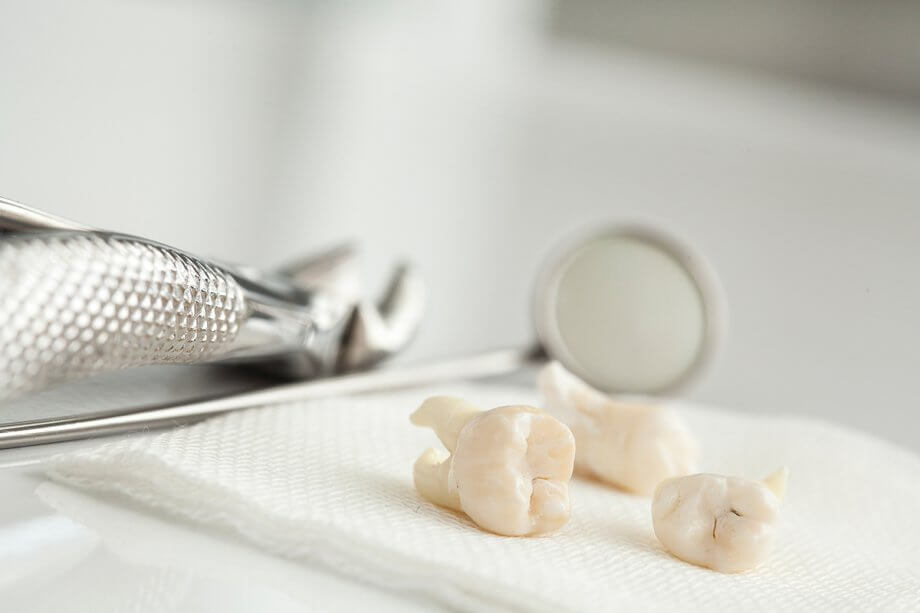Wisdom teeth were once necessary, because our ancestors consumed a diet of raw plants and meat that were tough to chew. Today, our diet has evolved as we have ourselves, making wisdom teeth no longer necessary, and for many patients, necessary to remove.
Removing Wisdom Teeth
Along with no longer being necessary for our ability to eat, today wisdom teeth don’t always fit well in our mouths and jaws. This is because human jaws are significantly smaller in size than that of our ancestors. And so, without enough room to easily fit, wisdom teeth often push up and crowd other teeth once they erupt, or they are unable to properly erupt, staying stuck in the gum and causing impaction, which can be painful and cause infections. So, to prevent complications, regularly seeing your dental team is key.
Extracting Impacted Wisdom Teeth
If wisdom teeth do become impacted, extraction will put an end to swollen gums, pain and discomfort, and the possibility of infection. Extracting wisdom teeth that have fully erupted but are crowding your mouth is also a good idea to prevent crooked teeth, and the gum disease and tooth decay that can be caused when you can’t properly reach your other molars for brushing and flossing due to the crowding in your mouth.
Extraction, or removing wisdom teeth, is most often done in your dentist or oral surgeon’s office, using either local sedation, IV sedation, or general anesthesia to prevent pain during extraction. The gum tissue surrounding the tooth is opened if the tooth is impacted, the tooth removed, and sutures placed to close the wound. It can take 2 to 4 days to recover from a typical extraction; however, if the wisdom teeth are badly impacted, it can take a bit longer.
So, Should Wisdom Teeth Be Removed?
Sometimes, patients will wait for wisdom teeth to come in, hoping that an impacted tooth will smoothly break through the gum surface and either grow straight without crowding the mouth, or be easier to remove than an impacted tooth.
Wisdom teeth typically will begin to erupt between ages 17 and 25. But the eruption timeline is different for everyone. Our dental team believes that wisdom teeth, also called third molars, are removed only if they are deemed potentially problematic.
These problems include:
- Size of your jaw
- Impaction
- Proper occlusion
- Crowding
Your regular dental exams will typically show when wisdom teeth extraction is recommended. Regular dental checkups can detect any complications such as impacted wisdom teeth before a bigger problem occurs, whether due to impaction, lack of space, or sudden pain. Complications may become more likely as you grow older.
Wisdom teeth extraction is an effective way to prevent crowding of the teeth, impaction of wisdom teeth, red, swollen, or painful gums caused by a partially erupted wisdom tooth, and gum disease and tooth decay.
Depending on the complexity of the extraction, your doctor will use local anesthesia, sedation, or general anesthesia.
Ready to Learn More About Wisdom Teeth?
If you’d like to learn more about wisdom teeth or schedule a consultation, we’re here to help. Just reach out to us today at Oral and Facial Surgery Centers of Massachusetts!

